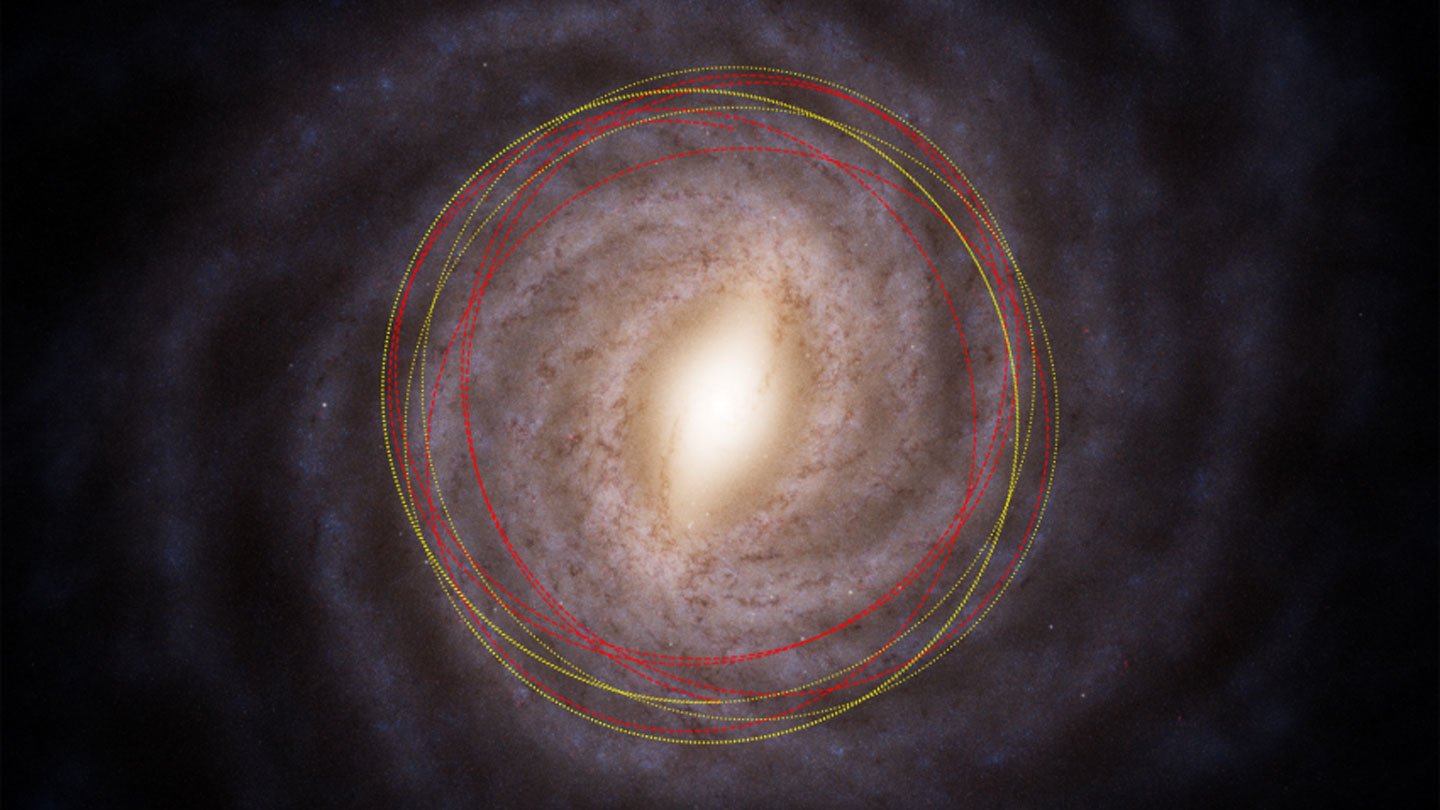The solar system’s newest visitor, 3I/ATLAS, may be 3 billion years older than the sun and its planets.
First discovered on July 1, 3I/ATLAS is a rare interstellar object — only the third ever spotted. Since then, astronomers have been racing to uncover its origins. A new calculation predicts that 3I/ATLAS originated from a part of the Milky Way called the thick disk. If so, there’s a two-thirds chance that it’s a comet over 7 billion years old. That would make it the oldest comet known, researchers reported July 11 at the Royal Astronomical Society’s National Astronomy Meeting 2025 in Durham, England.
Interstellar objects don’t come with “a label that you can just read,” says study coauthor Chris Lintott, an astrophysicist at the University of Oxford. “All we really know is the direction it’s coming in, and to go from that to say anything about the age is really rewarding.”
Others caution that more data are required to confirm the object’s origin and age.
When it comes to origin, “it could have been an amazingly lucky object that encountered nothing,” says Pamela Gay, an astronomer with the Planetary Science Institute, headquartered in Tucson, Ariz. “At the same time, it could have had its orbit changed dozens of times through encounters with other solar systems or rogue planets.” Or, it even could have come from someplace closer along the same trajectory, she adds.
Lintott agrees that more evidence is needed. But because 3I/ATLAS’s velocity is typical for an interstellar object, he says, “we can be reasonably sure it hasn’t encountered another star.” He adds that 3I/ATLAS is moving up and down in the galactic plane, which happens when something has been in the thick disk of ancient stars above and below the galaxy’s thin plane for a long time — bolstering the hypothesis that 3I/ATLAS is old and originated there.
Underpinning the prediction is a probability simulator for studying interstellar objects, Lintott and colleagues also report in a paper submitted July 7 to arXiv.org. Extrapolating from the measured positions and velocities of roughly a billion stars observed by the Gaia satellite, the simulator models the trajectories of every star in the Milky Way, both living and dead, and includes their likely asteroids and comets. Combining this simulation with actual telescope data, researchers can then predict where an interstellar object came from — and based on the age and composition of the stars there, the properties of the object too.
Applying the model to 3I/ATLAS suggests the visitor came from the Milky Way’s thick disk. If it did form there, the relative lack of heavy elements in those stars means the comet is probably rich in water, as opposed to rock or dust.
Composition data will help rest the case, both Gay and Lintott say. In the coming weeks, sunlight will trigger outgassing, revealing vapor and dust signatures. In particular, astronomers will be eager to measure its water abundance and elemental makeup, which could help verify whether 3I/ATLAS came from an old, thick-disk star.
Until then, 3I/ATLAS’s origin remains a guessing game. “It’s like Wheel of Fortune,” Gay says. “We have four letters out of 20 right now, and someone might be able to guess the entire phrase, but they could also be very wrong.”




